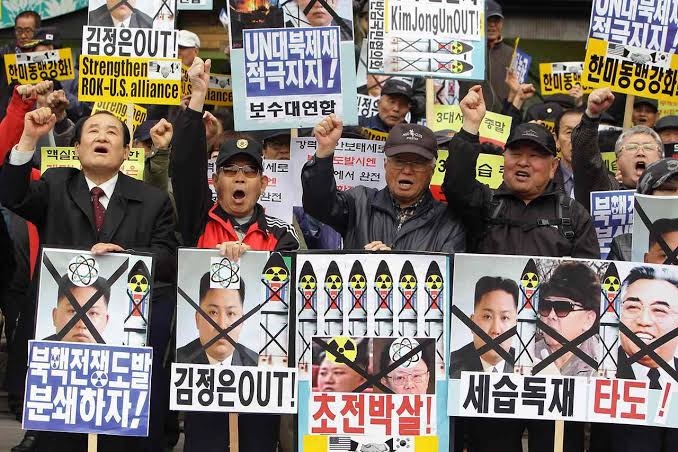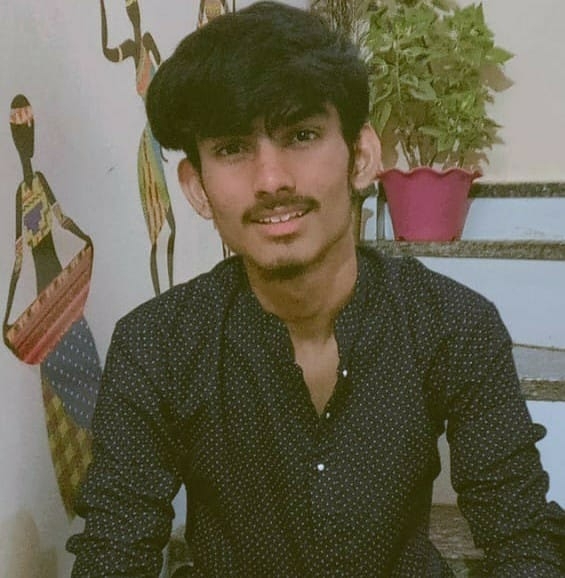Degradation of human rights, under the red influence in North Korea & Cuba
North Korea’s political system is built upon the principle of centralization. The constitution defines North Korea as “a dictatorship of people’s democracy” under the leadership of the Workers" Party of Korea (WPK), which is given legal supremacy over other political parties.

This is the third article in a series of five articles where we delve into a comprehensive analysis of human rights abuses occurring within communist dictatorships and Islamic regimes. In this article, we'll shed light on the impact of communist regimes, primarily in Cuba and North Korea, where we examine how common people are affected and the multifaceted ways in which they experience exploitation, encompassing economic, social, cultural, and psychological aspects. Through this article series we'll uncover the realities and shed light on human rights violations in different contexts.
As mentioned earlier, blemishing of freedom and right to live is the quintessential in Communist states, the life threatening nations North Korea following the communist regimes and Cuba are no exception to it.
Significant human rights issues in North Korea and Cuba included credible reports of unlawful or arbitrary killings by the government; forced disappearances; torture and cruel, inhuman, and degrading treatment and punishment by government authorities; harsh and life-threatening prison conditions, including in political prison camps; arbitrary arrests and detentions have been observed.
Apart from this reports of political prisoners and detainees; transnational repression against individuals in another country; nonexistent judicial independence; arbitrary or unlawful interference with privacy; punishment of family members for offenses allegedly committed by an individual; total state control of expression and media through censorship and repression; serious restrictions on internet freedom have been observed.
And some reports came to the fore related to substantial interference with freedom of peaceful assembly and freedom of association; severe restrictions on freedom of religion or belief; serious restrictions on freedom of movement and residence within the country and on the right to leave the country; inability of citizens to change their government peacefully through free and fair elections; severe restrictions on political participation; serious government corruption; prohibition of independent domestic human rights organizations and complete denial of access to international human rights organizations; lack of investigation of and accountability for gender-based violence; significant barriers to accessing reproductive health, including coerced abortion and forced sterilization; trafficking in persons; the outlawing of independent trade unions; and the worst forms of child labor.
North Korea
With the more than 40% population of undernourished citizens , freedom of movement and right to information has been severely restricted in the authoritarian North Korea as the result reliable information about North Korea is limited because of it’s tight control over the internal affairs.
Political Repression
North Korea’s political system is built upon the principle of centralization. The constitution defines North Korea as “a dictatorship of people’s democracy” under the leadership of the Workers' Party of Korea (WPK), which is given legal supremacy over other political parties.
North Koreans suffer political repression from every aspect of daily life, including speech, travel, employment, and religion.
About 120,000 political prisoners are caged in the internment camps of central and north-eastern North Korea. [In order to make sure the extreme isolation from the outside world, those camps are situated in the secluded mountain valleys.]
Forced Labor
Within North Korea, forced labor is part of an established system of political repression. North Koreans do not have a choice in the jobs they work and are not free to change jobs at will; the North Korean government determines what work each citizen will have.
From a young age, children are forced into labor, including agricultural labor support, item collections and construction work. Children in prison camps, orphanages, and relief shelters are also subject to arduous labor.
Lack of freedom of religion
Religious freedom conditions in North Korea are among the worst in the world. The North Korean constitution nominally grants freedom of religious belief, but it also prohibits the use of religion for “drawing in foreign forces or for harming the State.” Anyone caught practicing religion or even suspected of harboring religious views in private is subject to severe punishment, including arrest, torture, imprisonment, and execution. It is found and can be concluded that people believing in any almighty force greater than the Kim(s) faces persecution, harassment, discrimination.
Food insecurity
North Korea has faced chronic food shortages , leading to malnutrition and starvation among its population. North Korea reported a concerning number of death due to starvation.
The weird shocking laws in North Korea: Insulting Kim and his family is blasphemy ; North Koreans face power cuts every night due to the energy crisis. They need permission to use electricity. Owning a microwave is also illegal ; If anyone in North Korea commits a crime, not only he/she will be punished but also his/her parents, grandparents and children will be penalised too ; Watching or listening to foreign movies and songs is completely against the law.
A person can be sent to jail for this ; In 2013, Kim introduced a law where both men and women can only do one of 28 government- approved haircuts, 18 for women, and 10 for men; while other haircuts are prohibited.
He did not include his own haircut ; Only rich and wealthy people can live in the capital city that to with permission; Making an International call is a crime, wanting to call someone while you are in North Korea is completely against the rules. A person can be punished for the same. In 2007, a factory worker was executed in front of 150,000 citizens.
Conclusion
The North Korean government does not respect the rights to freedom of thought, opinion, expression or information. All media is strictly controlled. These are just a very few examples of the human rights situation in North Korea, based on available information.
It’s worth noting that the North Korean government has consistently denied or downplayed allegations of human rights abuses and restricts access to the country, making it challenging to independently verify reports.
Cuba
Human rights in Cuba are under the scrutiny of human rights organizations, which accuse the Cuban government of committing systematic human rights abuses against the Cuban people, including arbitrary imprisonment and unfair trials.
The Cuban government represses and punishes dissent and public criticism. Tactics against critics include beatings, public shaming, travel restrictions, short-term detention, fines, online harassment, surveillance, and termination of employment.
Like every Communist nation, Government officials, at the direction of their superiors, committed numerous human rights abuses. As a matter of policy, officials failed to investigate or prosecute those who committed these abuses.
Impunity for the perpetrators remained widespread, as was impunity for official corruption. The Cuban government explicitly prohibits independent trade unions, there is systematic harassment and detention of labor activists, and the leaders of attempted independent unions have been imprisoned.
The right to strike is not recognized in law. Notably, like every other communist nation, practicing Human rights is a sin — and the authorities of Cuba hold no resistance to it, and continue the Communist regime of degrading human lives.
Undoubtedly Cuba’s communist regime has been animated by anti religious identity from it’s earliest days with the Castro regime imprisoning, torturing and even murdering religious leaders.
A recent survey by the Cuba Observatory of Human Rights paints a troubling picture of what life is like for people of faith in Cuba, for whom surveillance, internet censorship and restrictions on travel are regular occurrences.
And as testimonies from independent faith leaders documented by the International Republican Institute show, the regime uses intimidation, harassment and arbitrary detention of these leaders to curtail the influence of religious communities.
The Cuban government still refuses to recognize human rights monitoring as a legitimate activity and denies legal status to local human rights groups.
In every statement and proceeding it can be concluded that the Human rights conditions in Cuba or in any other Communist state, is a matter of significant concern.
Human rights are moral principles or norms for certain standards of human behaviour and are regularly protected in municipal and international law, but are repeatedly ignored by communist states and their allies Islamic territories , And in this period of globalisation – they are threat to humanity.

contemplating society and politics through cultures

